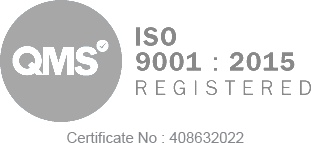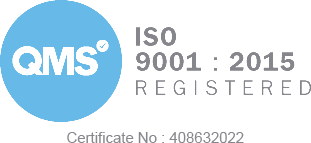
Building customer relationships is an important task, simply because customers are the backbone of a successful organization. In order to succeed with the competition, one has to beat the competition, while having a loyal customer database to bank upon. As Steve Jobs once said, “Customers don’t know what they want, until they see it”. For this very reason, customer service is as important as customer loyalty.
This is where Customer Relationship Management or CRM software comes into the picture. A well prepared CRM software will not only help you build and maintain your relationship with your customers, but also help you offer better customized services which will boost customer loyalty. This is especially true, especially if one considers that fact that acquiring a customer is more costly than retaining old customers. With such high costs involved in customer acquisition, organizations prefer to maintain existing relationships, than invest in building new customer bases.
In order to work on these points, an organization needs to have CRM software, which is linked with the organizational goals and has close linkages with the internal processes.
Irrespective of the type of business you have, if you are using a CRM to drive business, chances are your CRM software needs to possess certain characteristics. Here are the top 3 requisites which are a must for every CRM’s success.
1. Gathering customer data
CRM software should be able to gather useful customer data about your customers, and use it further to develop actionable strategies to increase revenues. CRMs can be quite good, especially when it comes to producing data in different formats; you can request the CRM to provide data on your customer’s spending patterns, their behavior, as well as specific pain points and problems they might be facing. Basically, different types of data can be requested, as per the need of the hour. A well built CRM software can enable the different teams to record different types of data and use it as per the requirements.
2. Warehousing data
CRM software is a good tool, especially when it comes to aggregating data from different sources. The CRM can be rigged to compile data from manual entries, websites, social media as well as other communication channels. This aggregated data can be stored in a repository, and can be made available to users, as and when required. All this stored data can be easily modified, and the old data can be deleted, whenever the need arises. The settings can be tweaked accordingly.
3. Delivering ready to use data
Data is the crux of business operations. In other words, when you have a good CRM system, rest assured all data users will have the required data on their hands. This is the benefit of a good CRM system. When data is compiled, it is made available to people who need it to perform further analysis of any sort. Such is the power of an efficient CRM system.
Navigating through a CRM can be a little daunting at times, especially if the users are not too familiar with the usage techniques. In order to make the most of the initial stage, and get the maximum returns from the software, it is important to plan in advance, before moving to the building stage. For this very reason, one needs to gather evidence, assess the scope and business requirements, shortlist the development platform and narrow down the options, and voila, you will be done!
1. Gather the needs
Once you have established the need for developing a CRM for your business, it is time to understand the needs and the uses within your business the CRM software will be serving. In other words, how and for what purpose will the software be used. Make a list of the pros and cons of using the software, the developing cost, the uses, the purposes, features to be included etc. However, don’t expect the CRM to just eradicate your problems magically. It will not be the end solution for meeting all your business needs.
2. Assess the scope
Once the needs have been gathered, it is time to define the scope of the software, as this will not be the one stop shop for all your business needs. For example, CRM software can be used to gather and store the data of all your customers, send reminder mails to them for a specific campaign. However, it might not be used to make calls on the company’s behalf automatically. For this very reason, the scope of the software needs to be defined and assessed during the initial stage itself.
3. Short listing the platform to be used
Once the basics are out of the way, it is time to shortlist the platform on which the CRM will be created and deployed. This will ideally be done by the developing company itself; however, as a business, you also have a say in deciding which platform to use. Companies use Java, Drupal and other hosting services to launch their CRM software. Here’s a word of caution though. Before hiring a developing company to work on your CRM software preparation, make sure you find out the reviews of the developing company. This way you will be able to shortlist the best service provider, without any end surprises.
4. Gauge the performance post completion
Once the software has been deployed, and the business is using it to meet its day to day needs, it is time to gauge the performance against the metrics. For this very purpose, it is important to measure the success and see how well the CRM is measuring against the intended purposes.
Customer Relationship Management software can be very beneficial, when it comes to making your business perform efficiently. It not only helps in good customer management, but also goes a long way in ensuring the business is able to meet all its intended goals and targets. There are a lot of freelancers available in the market who specialize in developing CRMs, as well as companies who offer excellent services to businesses on the lookout for such software.






